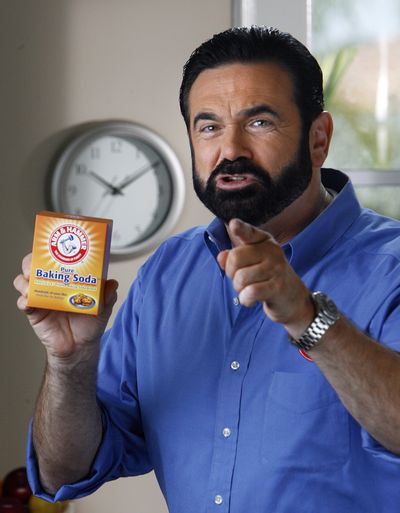TV ad man Billy Mays delivers the pitches even after his death

Billy Mays’ powers of persuasion will live on.
The booming, bearded TV pitchman died two weeks ago of complications from heart disease, and his ever-present spots were pulled from their perches on late-night and cable TV. But the pitch must go on. So Mays’ TV commercials will return to the air.
Two new Mays commercials – for Mighty Tape and the Mighty Putty Super Pack – will debut over the next two weeks, said Bill McAlister, president of Media Enterprises, the marketing company behind the Mighty Brand pitches.
Older commercials, for Mighty Putty and Mighty Mendit, began airing again this week.
“Billy didn’t shoot the commercials for them not to air,” said Roger Pliakas, attorney for Mays Promotions Inc. “He shot commercials to roll the products out and make money for his business partners.”
Sales of Mighty products have jumped about 25 percent since Mays’ death, McAlister said. It’s unclear whether Mays’ death plays into that, he said, but so far consumers are not wary of buying products he pitched.
“We didn’t know what to anticipate,” McAlister said. “But we’ve gotten such a great response that we decided to go forward with the ads.”
Mays worked with several other companies aside from Media Enterprises in his career. He most famously pitched for brands like Orange Glo and OxiClean. Those companies have not made public what they plan to do with the commercials.
Eli Portnoy, chief brand strategist at Los Angeles-based branding firm the Portnoy Group Inc., said it’s normal for a brand to see a jump in sales after it’s been in the news. The question is, he said, whether it can sustain the increase in interest or whether it will turn against them.
“There comes a point that consumers might be put off by the brand and start thinking that the company is trying to cash in on his death,” he said. “So they’ll have to tread lightly.”
Mays, Portnoy said, was a pitchman; he sold for a living. So consumers might not be as inclined to turn away as they would if another celebrity who died was trotted out to push a product.
But Mays’ business partner and longtime friend Anthony “Sully” Sullivan said Mays, who died unexpectedly at 50, would want to the commercials to continue airing.
“Billy loved being on camera. He loved making money for the companies that hired him,” Sullivan said. “He’d roll over in his grave if the ads were being pulled off the air.”
Sullivan and Mays have made more than $1 billion in combined sales, according to Fortune magazine. The pair’s business exploits are documented in the Discovery channel series “Pitchmen.”
Sullivan anticipates the business taking a hit without Mays.
“There will never be another Billy Mays,” Sullivan said, choking back tears. “He’s an American original. But business must go on. Billy would want it that way.”